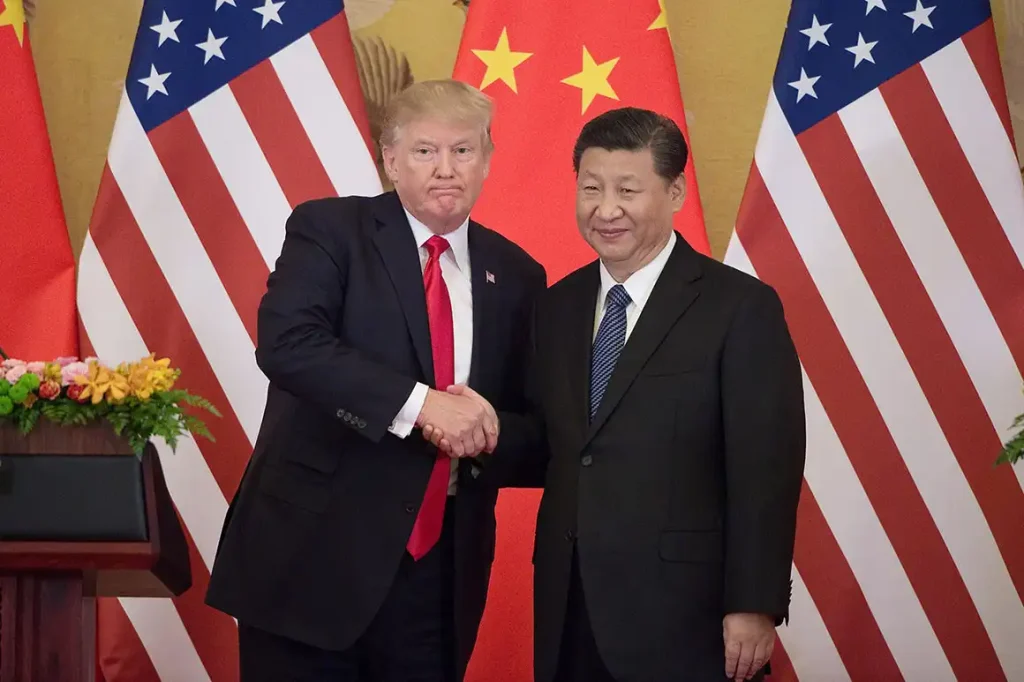For decades, the United States viewed China as its primary rival, with broad agreement across political lines.
Now, President Donald Trump is challenging that consensus as he gears up for a face-to-face with Xi Jinping on Thursday in South Korea their initial in-person talks since 2019.
Trump, known for his negotiation skills and affinity for authoritarian figures, has spoken positively about Xi, much like his comments on Russia’s Vladimir Putin despite stalled Ukraine peace efforts.
During a campaign interview on Fox News, Trump described Xi as exceptional despite his tough stance on Beijing.
“He manages 1.4 billion with total control clever, outstanding, flawless. No actor matches him,” Trump remarked.
Last week, Trump suggested his rapport with Xi made a Taiwan invasion unlikely, the island China views as its territory.
Trade Deal in Focus
Economic ties top Trump’s priorities for the world’s biggest economies. He has fluctuated on tariff threats against China, but recent Kuala Lumpur discussions indicate progress toward an accord.
Ryan Hass, a former Obama-era China expert, highlighted a gap between Trump’s bargain-hunting approach and the U.S. system’s emphasis on containing Beijing.
Hass questioned China’s desire for a major pact with Trump, seeing it as a way to sideline America rather than partner equally.
“Beijing aims to dominate the center, not share it with Washington,” Hass observed. He predicted any agreement might delay confrontation without advancing long-term goals.
Past Agreements Fall Short
Trump praised a 2019 pact requiring China to purchase $200 billion in extra U.S. goods. The deal largely failed, partly due to the global health crisis. By his first term’s end in 2021, Trump blamed the “Chinese virus” for his woes.
His successor escalated restrictions on tech exports while pursuing limited pacts on shared interests.
Yun Sun, a policy analyst, noted China’s pragmatic view of Trump. Despite stylistic clashes, Beijing sees him as flexible where the prior administration was rigid.
“Trump has cooperated on issues Biden wouldn’t budge on,” Sun said, citing reports of blocking a Taiwanese leader’s New York layover during a Latin America tour a move that once routinely irked China.
Taiwan’s Unpredictable Role
Henrietta Levin, a ex-diplomat, recalled predictable U.S.-China scripts on Taiwan in past summits. Now, she foresees unpredictability in Trump’s response to Xi’s demands.
“Trump links big-picture strategy to short-term economics and potential wins with China,” Levin explained.
China opposes U.S. arms to Taiwan and wants a clear anti-independence stance from Washington, stronger than the current non-support policy.
Secretary of State Marco Rubio, a Taiwan ally in his Senate days, assured reporters Saturday that America won’t abandon the island for trade concessions.
Broader Implications
The meeting arrives amid U.S. domestic divides, global conflicts, and economic strains. Trump’s style blunt, personal could yield breakthroughs or escalate frictions.
Experts warn of risks: a weak deal might embolden China; a strong one could reshape alliances.
As the summit nears, eyes turn to outcomes on trade, tech, and territorial disputes.
Will rapport trump rivalry, or deepen divides? The world watches.
READ MORE: Russia Slams Trump’s Oil Sanctions, Warns of Ukraine Talks Risk




















